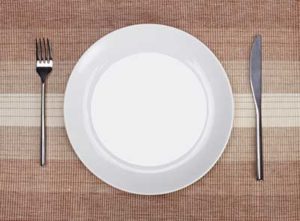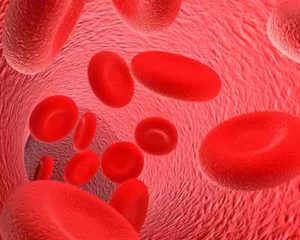 Yes, well, maybe. It depends on you, and how you go about it, but intermittent fasting as a way to lose weight might be the best thing for you…
Yes, well, maybe. It depends on you, and how you go about it, but intermittent fasting as a way to lose weight might be the best thing for you…
Going without food altogether for a day might seem like hell in theory, but for some people it’s easier than trying to monitor how many calories they consume all day, every day.
Intermittent fasting (IF) has become a popular method of losing weight, and is even showing strong evidence of being a healthy lifestyle for other reasons, including extending life expectancy!
One sign that you might be a candidate for Intermittent Fasting is whether you can stick to portion sizes when you eat, or whether you even have to time to figure out portion sizes and calculate calories.
If you can stick to portion sizes and have good discipline in this respect then there is no real need for you to experiment with intermittent fasting. It has pretty much the same outcome on your weight control However, you might want to try it anyway to explore its potential and its other benefits.
Should your answer be: no, I am not good at portion/calorie control, then intermittent fasting is in many ways a simpler routine to follow.
Different Types of Intermittent Fasting
 This is where the big IF of IF. There seems to be no end of fasting/eating schedules, timeframes and durations that people have tried or are trying.
This is where the big IF of IF. There seems to be no end of fasting/eating schedules, timeframes and durations that people have tried or are trying.
Perhaps the biggest factor is your comfort level. If it’s harder for you than ‘regular’ dieting, for example, then maybe it is defeating the purpose.
There have been extreme cases of people fasting. One such case even occurred under medical supervision in the 1970s, and is still the fasting world record. A man went 382 days without eating, and only small periods where he had an kind of vitamin supplementation.
ref. W. K. Stewart and Laura W. Fleming | Features of a successful therapeutic fast of 382 days’ duration | Postgrad Med J. 1973 Mar; 49(569): 203–209.
But before you run off and start your year without food, you should note that the man was over 400 lbs when he started. And also that the planned fasting period was much shorter; he was just healthy after the initial planned duration and wanted to continue. He did so under close medical supervision.
More sustainable methods have been suggested by contemporary dieticians.
- Alternate day fasting is a viable method. This is where you eat during a 12 hour day and then fast for the 12 hours of night, and then the following 24 hours. Essentially a 12hr / 36hr cycle.
- The 5:2 diet went through a ‘fad’ phase but it’s still a legit IF method and one that works of ta lot of people. Simple really: Eat normally for 5 days, fast for 2.
- Two days a week whenever you want to do them – separate, back to back, it’s your call. That’s a good one for people who need flexibility with work or training.
Meal Skipping
It’s reasonable to think that skipping breakfast or lunch ever day would lead to similar results over the scale of weeks and months, but research suggests it is less successful than the other types of IF, unless you strictly control the other portion sizes of the other meals in the day.
What are the Benefits aside from Weight Loss?
We mentioned that there’s some other health benefits to this intermittent fasting thing.
Fasting can trigger some processes in the body like regeneration and is even a potential life extension according to some animal studies (though you have to realize that these results may not be extrapolated to humans).
ref. Longo VD1, Mattson MP2. | Fasting: molecular mechanisms and clinical applications. | Cell Metab. 2014 Feb 4
ref. Masoro EJ | Overview of caloric restriction and ageing. | Mech Ageing Dev. 2005 Sep
Basically, more research is required into the unique benefits of fasting in a general health context as well as weight loss.
But..I get weak and light-headed if I skip just one meal
 Then you might have other issues you need to address, such as blood sugar regulation, risk of Type II Diabetes etc. This is not meant to be demeaning at all; some people put these symptoms to the back of their mind until it is a real problem.
Then you might have other issues you need to address, such as blood sugar regulation, risk of Type II Diabetes etc. This is not meant to be demeaning at all; some people put these symptoms to the back of their mind until it is a real problem.
If you think you suffer from spikes and drops in blood sugar or any other metabolism and diet related energy/fatigue issues, speak to your doctor.
Some people, however, just don’t get along with Intermittent Fasting. This is not a problem in itself, but if you truly want to lose weight and get healthier, try to remember the rule that calories in must be less than calories burned.
Doesn’t Fasting trigger Starvation Mode and I’ll Store More Fat when I eat again?
In short: Starvation Mode isn’t really a thing. It’s a theory that arose from one study, and has since been discarded.
That guy that fasted for 382 days, the one we mentioned earlier…he never went into this so-called starvation mode.
Conclusion
People who are obese or overweight to begin with appear to have more success with IF than others. Once they have accustomed themselves to the obvious strangeness of not eating for a whole day, the impact is much greater for them.
To put it bluntly, the greater your store of fat, the more energy reserves your body has to go through. When your system gets used to tapping into that energy source more efficiently, the easier the fasting will become.
Leave a Reply